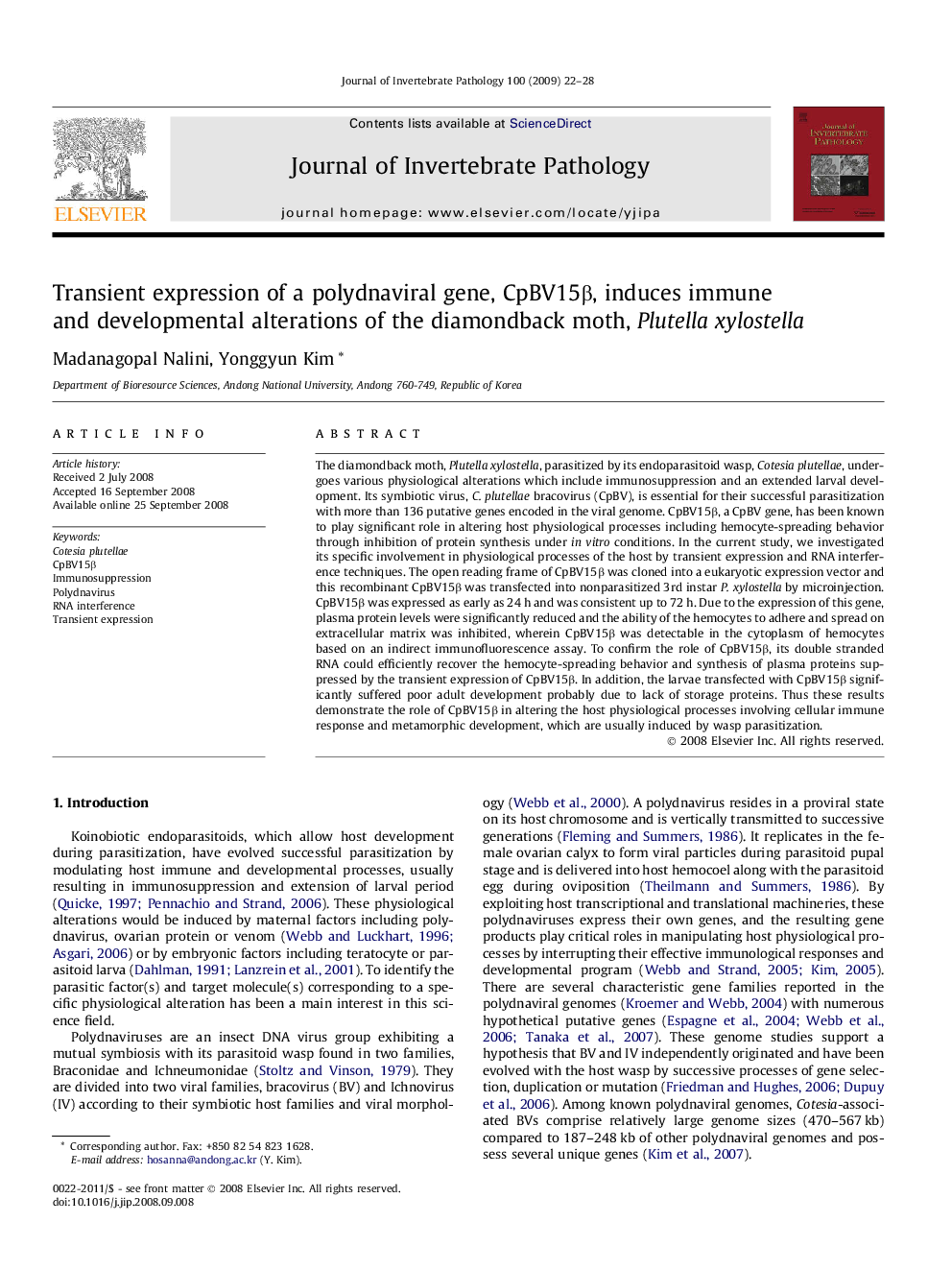| Article ID | Journal | Published Year | Pages | File Type |
|---|---|---|---|---|
| 4558474 | Journal of Invertebrate Pathology | 2009 | 7 Pages |
Abstract
The diamondback moth, Plutella xylostella, parasitized by its endoparasitoid wasp, Cotesia plutellae, undergoes various physiological alterations which include immunosuppression and an extended larval development. Its symbiotic virus, C. plutellae bracovirus (CpBV), is essential for their successful parasitization with more than 136 putative genes encoded in the viral genome. CpBV15β, a CpBV gene, has been known to play significant role in altering host physiological processes including hemocyte-spreading behavior through inhibition of protein synthesis under in vitro conditions. In the current study, we investigated its specific involvement in physiological processes of the host by transient expression and RNA interference techniques. The open reading frame of CpBV15β was cloned into a eukaryotic expression vector and this recombinant CpBV15β was transfected into nonparasitized 3rd instar P. xylostella by microinjection. CpBV15β was expressed as early as 24 h and was consistent up to 72 h. Due to the expression of this gene, plasma protein levels were significantly reduced and the ability of the hemocytes to adhere and spread on extracellular matrix was inhibited, wherein CpBV15β was detectable in the cytoplasm of hemocytes based on an indirect immunofluorescence assay. To confirm the role of CpBV15β, its double stranded RNA could efficiently recover the hemocyte-spreading behavior and synthesis of plasma proteins suppressed by the transient expression of CpBV15β. In addition, the larvae transfected with CpBV15β significantly suffered poor adult development probably due to lack of storage proteins. Thus these results demonstrate the role of CpBV15β in altering the host physiological processes involving cellular immune response and metamorphic development, which are usually induced by wasp parasitization.
Related Topics
Life Sciences
Agricultural and Biological Sciences
Ecology, Evolution, Behavior and Systematics
Authors
Madanagopal Nalini, Yonggyun Kim,
